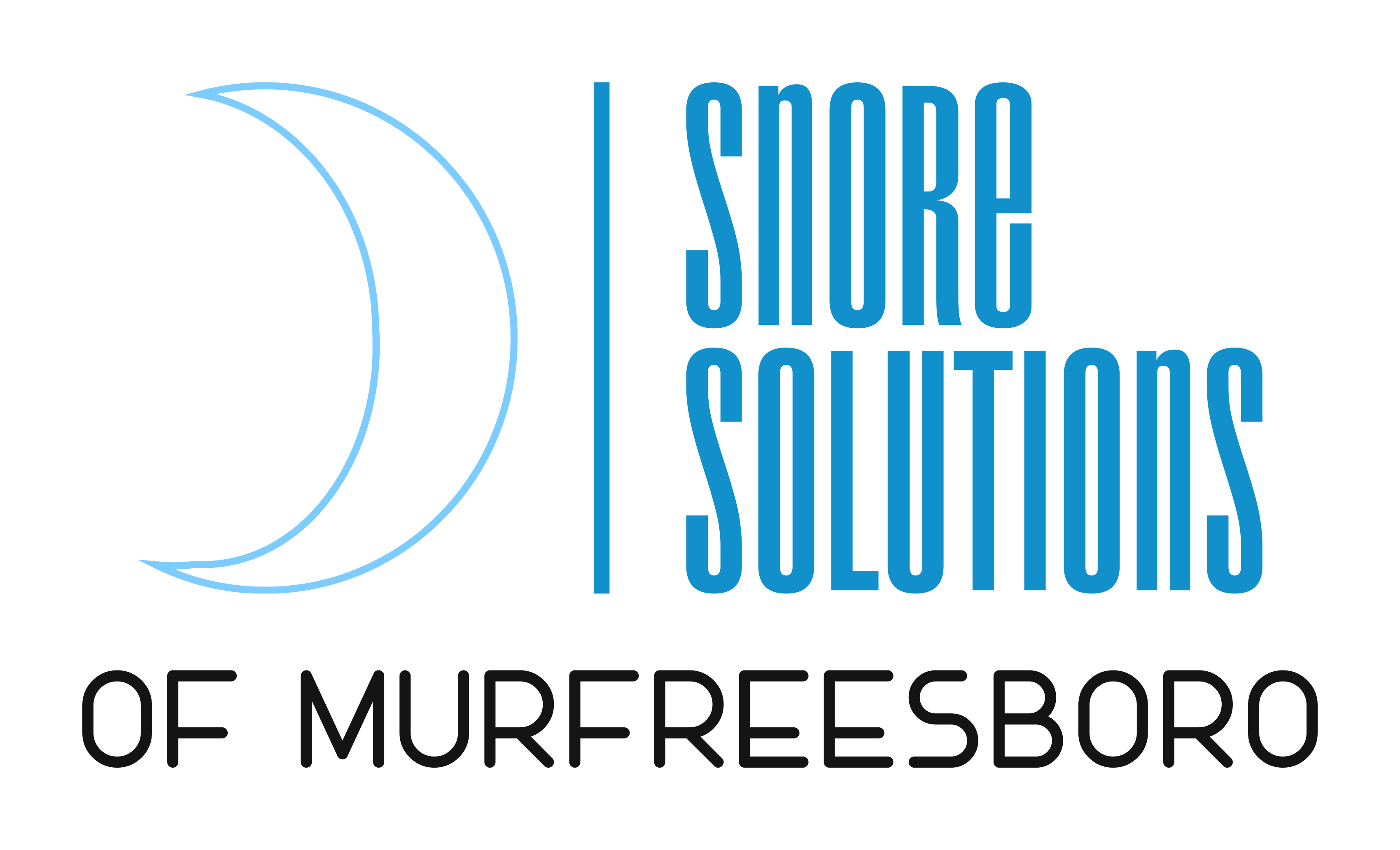Sleep apnea is a prevalent sleep disorder that impacts a significant number of individuals globally.
The definition and various types of sleep apnea, along with the symptoms that could signal its presence, are topics we delve into.
Traditional treatment options such as CPAP therapy and the significance of lifestyle adjustments in handling this condition are explored.
From dietary alterations and physical activity to considerations on sleep hygiene and relaxation methods, the discussion centers on how these modifications can promote the overall health and well-being of individuals dealing with sleep apnea.
Understanding Sleep Apnea
Sleep apnea is a common sleep disorder characterized by recurrent pauses in breathing during sleep. This disorder encompasses different types, such as obstructive sleep apnea, central sleep apnea, and complex sleep apnea syndrome.
Definition and Types of Sleep Apnea
Obstructive sleep apnea (OSA) is characterized by excessive relaxation of the muscles in the back of the throat, leading to an obstruction in the airway and cessation of breathing. In contrast, central sleep apnea (CSA) occurs due to the brain’s failure to provide proper signals to the respiratory muscles.
In OSA, the obstruction typically occurs when the soft tissues at the back of the throat collapse, causing a narrowing or blockage of the airway during sleep. This results in breathing pauses, often accompanied by gasping or snorting as the body attempts to restore normal airflow. Conversely, CSA involves a direct issue in the brain’s respiratory control centers, where irregular signals regulating breathing lead to breathing pauses.
Complex sleep apnea syndrome, a less common variant, combines features of both OSA and CSA, necessitating tailored treatment approaches to address its unique characteristics.
Symptoms of Sleep Apnea
Typical indicators of sleep apnea encompass prominent snoring, instances of respiratory pauses observed by a third party, sudden arousals accompanied by gasping or choking, and pronounced daytime somnolence.
Identifying and Addressing Symptoms
The identification of sleep apnea symptoms typically necessitates the undergoing of a sleep study, which involves the monitoring of sleep quality and the frequency of obstructive events occurring throughout the night.
During the course of a sleep study, numerous parameters such as breathing patterns, heart rate, brain activity, and oxygen levels are closely scrutinized to ascertain the presence of interruptions in breathing while in a state of sleep.
If left unaddressed, sleep apnea has the potential to lead to severe health complications including hypertension, cardiovascular disease, stroke, and even diabetes. Individuals suffering from untreated sleep apnea may encounter symptoms such as daytime drowsiness, irritability, and difficulties in concentration stemming from inadequate sleep quality.
The prolonged lack of treatment for sleep apnea can exert a substantial influence on overall health and quality of life, thereby underscoring the necessity for timely diagnosis and management to enhance well-being.
Traditional Treatment Options
Conventional treatment modalities for sleep apnea frequently encompass the utilization of CPAP therapy, which delivers a continuous positive airway pressure to maintain airway patency during sleep, supplemented by additional medical interventions customized to the individual patient’s particular clinical presentation.
CPAP Therapy and Other Medical Interventions
Continuous Positive Airway Pressure (CPAP) therapy is widely regarded as the primary treatment for obstructive sleep apnea due to its efficacy in maintaining a continuous positive airway pressure to prevent airway collapse and ensure unobstructed breathing.
This therapy entails the utilization of a mask connected to a machine that administers a steady airflow to keep the airways open during sleep. Through the provision of consistent support, CPAP therapy significantly diminishes instances of interrupted breathing, enabling individuals to attain restful sleep and wake up feeling rejuvenated. Healthcare professionals underscore the necessity of utilizing CPAP therapy consistently and correctly to attain its full benefits. Adherence to CPAP therapy is imperative for the effective management of sleep apnea and enhancement of overall health outcomes. Individuals encountering difficulties with CPAP usage may explore alternatives such as BiPAP and mandibular advancement devices.
Lifestyle Changes for Managing Sleep Apnea
Incorporating beneficial lifestyle adjustments is paramount for effectively managing sleep apnea, as these changes can substantially alleviate symptoms and enhance overall health outcomes.
Diet and Exercise Modifications
The management of sleep apnea requires essential modifications to one’s diet and exercise regimen, as these factors play a crucial role in mitigating the severity of symptoms. Maintaining a healthy weight is paramount, and this can be achieved through a balanced nutritional intake and regular physical activity, both of which contribute to symptom reduction.
Adopting a diet that is rich in fruits, vegetables, whole grains, and lean proteins is recommended, as these food groups provide vital nutrients essential for overall health and weight management. Conversely, it is imperative to steer clear of processed foods that are high in sugars and saturated fats, as they can impede weight control and negatively impact sleep apnea outcomes.
Incorporating aerobic exercises such as brisk walking, swimming, or cycling into one’s daily routine for a minimum of 30 minutes can prove beneficial in boosting metabolism and improving sleep quality. It is essential to introduce these lifestyle changes gradually and ensure their long-term sustainability to effectively manage sleep apnea symptoms.
Sleep Hygiene and Relaxation Techniques
Adherence to proper sleep hygiene practices and integration of relaxation techniques can significantly enhance sleep quality and effectively mitigate symptoms associated with sleep apnea.
Maintaining consistent sleep patterns, such as adhering to a regular sleep schedule by going to bed and waking up at consistent times each day, plays a crucial role in regulating the body’s circadian rhythm, thus fostering a more restful and undisturbed night’s sleep.
Establishing a tranquil sleep environment characterized by darkness, minimal noise, and optimal room temperature contributes to the enhancement of overall sleep quality.
Engaging in deep breathing exercises and mindfulness techniques can aid in stress reduction, which not only improves general sleep quality but also assists in the management of sleep apnea symptoms.
Embracing these fundamental principles enables individuals to experience improved sleep and potentially alleviate the impact of sleep apnea on their overall sleep quality.
Supporting Overall Health and Well-being
It is imperative to prioritize the maintenance of overall health and well-being for individuals diagnosed with sleep apnea. Positive lifestyle adjustments play a crucial role in alleviating symptoms and improving mental health, cognitive function, and general well-being.
Impact of Lifestyle Changes on Sleep Apnea
The impact of lifestyle changes on sleep apnea is significant, as targeted lifestyle interventions can result in notable improvements in sleep patterns, health outcomes, and the long-term management of the condition.
Implementation of lifestyle modifications, such as maintaining a healthy weight through diet and exercise, can lead to reduced symptom severity and enhanced sleep quality for individuals with sleep apnea. Additionally, integrating regular physical activity and stress-reducing techniques like meditation or yoga can further improve sleep quality and overall well-being.
These sustained lifestyle changes not only aid in symptom management in the short term but also have a positive effect on long-term quality of life and overall health outcomes.
Frequently Asked Questions
What is the role of lifestyle changes in managing sleep apnea?
The role of lifestyle changes in managing sleep apnea is crucial in improving overall sleep quality and reducing the symptoms of the condition. Lifestyle changes can help in reducing weight, improving breathing patterns, and promoting better sleep habits.
What are some lifestyle changes that can help in managing sleep apnea?
Some lifestyle changes that can help in managing sleep apnea include maintaining a healthy weight, avoiding alcohol and smoking, practicing good sleep hygiene, and exercising regularly.
How does maintaining a healthy weight help in managing sleep apnea?
Excess weight can put pressure on the airways, making it harder to breathe during sleep and worsening sleep apnea symptoms. By maintaining a healthy weight, the airways are less likely to become blocked, improving breathing patterns and reducing sleep interruptions.
Can avoiding alcohol and smoking make a difference in managing sleep apnea?
Yes, avoiding alcohol and smoking can make a significant difference in managing sleep apnea. Both alcohol and smoking can relax the muscles in the throat, leading to narrowing of the airways, and increasing the risk of sleep interruptions and breathing difficulties.
How can practicing good sleep hygiene help in managing sleep apnea?
Practicing good sleep hygiene involves creating a comfortable sleeping environment, sticking to a regular sleep schedule, and avoiding stimulating activities before bedtime. These habits can promote better sleep quality, reducing the frequency of sleep apnea episodes.
Is exercise beneficial in managing sleep apnea?
Exercise can be beneficial in managing sleep apnea as it can help in maintaining a healthy weight, improving cardiovascular health, and reducing stress and anxiety. However, it is essential to consult a doctor before starting any exercise routine for sleep apnea management.

